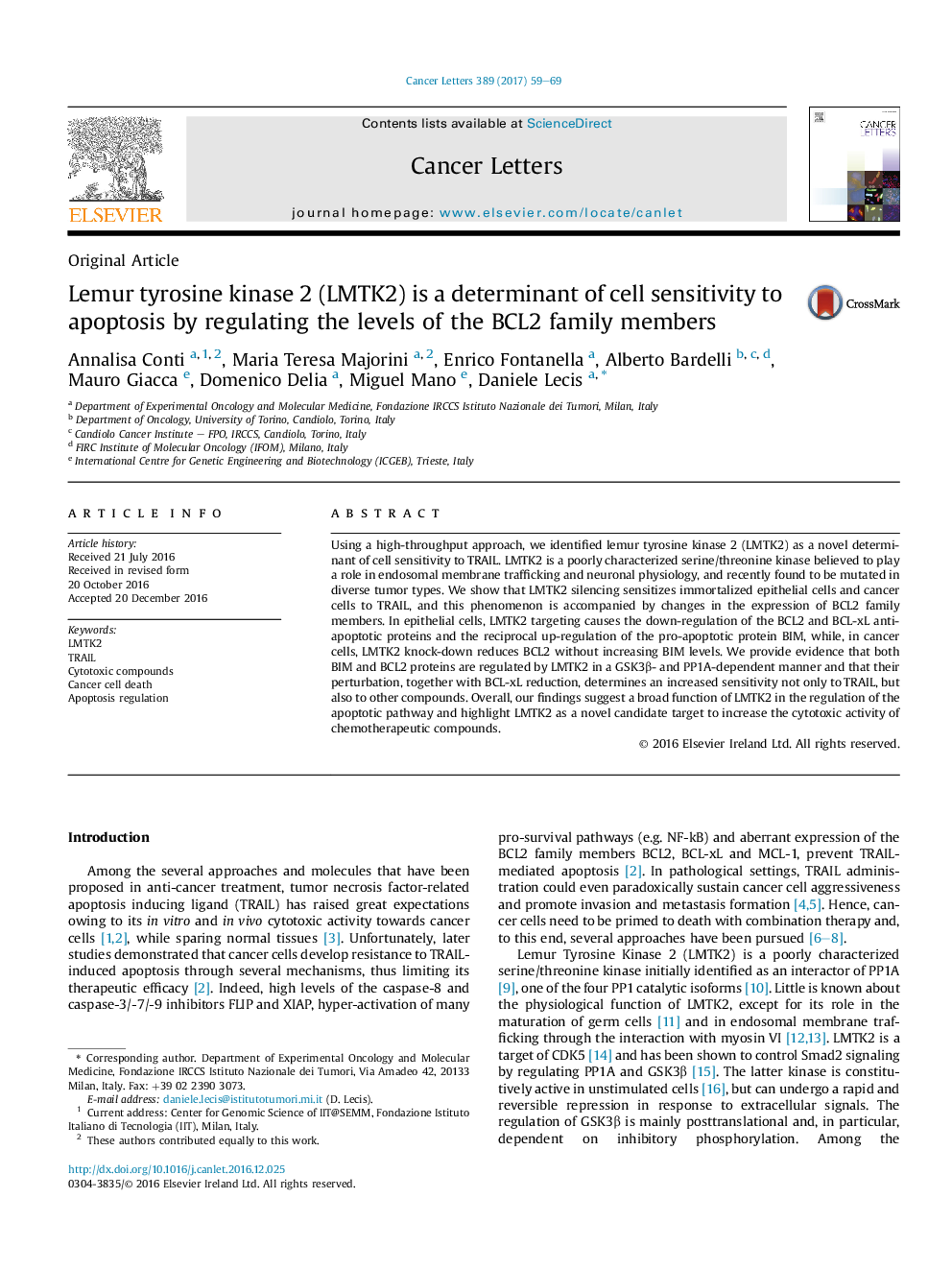| Article ID | Journal | Published Year | Pages | File Type |
|---|---|---|---|---|
| 5525571 | Cancer Letters | 2017 | 11 Pages |
â¢LMTK2 regulates different members of the BCL2 family in premalignant models.â¢The targeting of LMTK2 sensitizes to TRAIL treatment in a BIM-, BCL2-and BCL-xL-dependent manner.â¢LMTK2 controls BIM and BCL2 through the engagement of the AKT/GSK3β pathway.â¢The silencing of LMTK2 sensitizes cells not only to TRAIL, but also to a number of chemotherapeutic compounds.
Using a high-throughput approach, we identified lemur tyrosine kinase 2 (LMTK2) as a novel determinant of cell sensitivity to TRAIL. LMTK2 is a poorly characterized serine/threonine kinase believed to play a role in endosomal membrane trafficking and neuronal physiology, and recently found to be mutated in diverse tumor types. We show that LMTK2 silencing sensitizes immortalized epithelial cells and cancer cells to TRAIL, and this phenomenon is accompanied by changes in the expression of BCL2 family members. In epithelial cells, LMTK2 targeting causes the down-regulation of the BCL2 and BCL-xL anti-apoptotic proteins and the reciprocal up-regulation of the pro-apoptotic protein BIM, while, in cancer cells, LMTK2 knock-down reduces BCL2 without increasing BIM levels. We provide evidence that both BIM and BCL2 proteins are regulated by LMTK2 in a GSK3β- and PP1A-dependent manner and that their perturbation, together with BCL-xL reduction, determines an increased sensitivity not only to TRAIL, but also to other compounds. Overall, our findings suggest a broad function of LMTK2 in the regulation of the apoptotic pathway and highlight LMTK2 as a novel candidate target to increase the cytotoxic activity of chemotherapeutic compounds.
